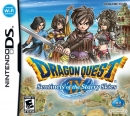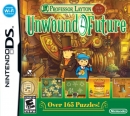Nem said:
Keeping an open mind is very good in order to search knowledge. But if you are indeed trying to understand reality, you know that there are inescapable facts. This reminds me of a recent debate about religion. Open-mindedness is what you use when trying to understand someone, but if their view isn't validated, you can't just keep this neutral state like nothing happened. You have to draw conclusions. There is no middle ground for everything. I'm not sure wich media you refer to, but the comedy news shows are very much in-the ball. More than the actual information networks. |
I agree. My thoughts on religion came about over years of consideration until I reached my conclusion on personally being an atheist. However, if as I state that conclusion I am open to new evidence. I hold no personal desire for reality to be the way I interpret it, I simply see it based on hundreds of debates I've had in my life and evidence I have found.
There are issues when asked my opinion I state "I don't know enough about this subject matter to form a strong view, I need to do research before commenting". Then there is a period of fact finding and discussion as the view goes from weak to forming into a strong state backed by those experiences. I think it is important to admit one's own ignorance first, and then do something about it. Being content in ignorance is far too common and can easily lead to being manipulated.
Social media is a catch all term for platforms such as Facebook and Twitter. I see a great deal from people parroting information that has no basis in reality. Even when called out and shown how it is unequivocally false, they shut down and either ignore or insult shifting focus away. In regards to traditional media (print, television, etc.) I would say getting multiple sources is key as single source can warp how one sees the world. I personally am interested in foriegn sources as often have views that are never considered domestically.




















